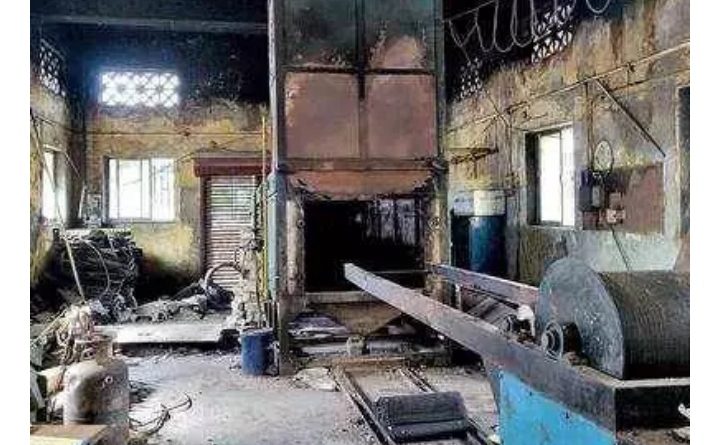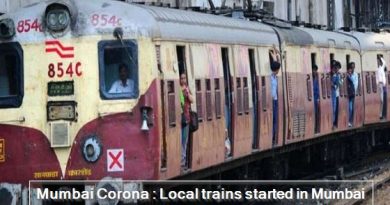The crematorium shortage in Mumbai : The wait to cremate the dead is only getting longer
Out of four electric crematoriums in eastern suburbs, two have not been functioning for the past two weeks; other two running beyond capacity
The wait to cremate the bodies of
Covid-19 victims in eastern suburbs is getting painfully longer. Out of four electric crematoriums bearing the burden of coronavirus
deaths, the ones in Bhandup and Ghatkopar have been non-functional, forcing families to wait for up to 14 hours.
Bhandup, Vikhroli, Mulund and Ghatkopar have one electric crematorium each and are receiving nearly 50 bodies every day as against their combined capacity of 29. However, for the past two weeks, the crematorium in Mulund has been non-functional and repairs will take another two weeks. The crematorium in Ghatkopar develops a technical snag every few days, together diverting allcremations
to Vikhroli crematorium. The operators said the Covid toll in eastern suburbs is rising steadily and has taken a toll on them.
Between April 2019 and March 2020, the electric crematorium in Bhandup had carried out 154 cremations. However, this year in May alone it has cremated 115 bodies. Of these, 89 succumbed to Covid-19.
“Each body needs two hours to cremate. We can only perform ten cremations per day. After our crematorium stopped working, we contacted MP Manoj Kotak who ensured Ghatkopar crematorium was functional,” said Bachubhai Gala, president of Shree Bhandup Gujarati Sewa Mandal that runs the Bhandup electric crematorium. However, he said that repair works will be completed by today.
Sanjay Dubey of Mulund Nagrik Sabha said the crematorium in the suburb is being revamped for the past six months, as per a planned effort by theBMC
. He said the past couple of weeks have seen a huge spike in coronavirus deaths. “At our cremation ground, there are six wood-operated crematoriums, but only three are currently functional. The other three are being fitted with an anti-pollution system. The electric crematorium will take another two weeks to resume,” he said.
In Ghatkopar, the gas crematorium has reached its daily capacity of six per day. MLA Parag Shah said, “Prior to March, it was used to cremate 30-35 bodies every month, which makes it one cremation per day. Now, we are running at capacity. As allCovid victims
have to be cremated, several non-Hindu families are also opting for it. Due to the increased load, the crematorium malfunctions sometimes.” As a result, some Covid victims had to be cremated in wood-operated crematoriums against the rules. Shah said, “There is an urgent need for temporary cremation grounds for Covid patients in the eastern suburbs.”
This issue has been raised several times by BJP leader Kirit Somaiya. He believes that the action plan for Covid-preparedness did not include crematoriums with electric chambers. He said a company from Pune maintains the gas crematoriums and another one from Bangalore maintains the electric crematoriums. He said there are five electric crematoriums between Sion and Mulund but only one is functional at any given point because of lack of maintenance. Somaiya said in some suburbs families are told to wait until the next day for last rites.
Sion crematorium to get eco-friendly equipment
To shoulder the spike in Covid-19 deaths, the BMC is planning to install eco-friendly equipment at Sion crematorium in the next 15 days. Mumbai Mirror has exclusive pictures of the equipment which will use 100 kg of wood
instead of 250 kg for a pyre. The equipment was ordered from Gorakhpur and cost the BMC Rs 95 lakh for two furnaces. It has a cover to prevent the ashes from flying in the air and a chimney to filter the smoke. “The load on Sion crematorium has increased after the Covid outbreak. The electric crematorium has a daily capacity of 20 bodies and each cremation takes 90 minutes. The new equipment would help reduce the load,” assistant municipal commissioner of F-North ward Gajanan Bellale said.




